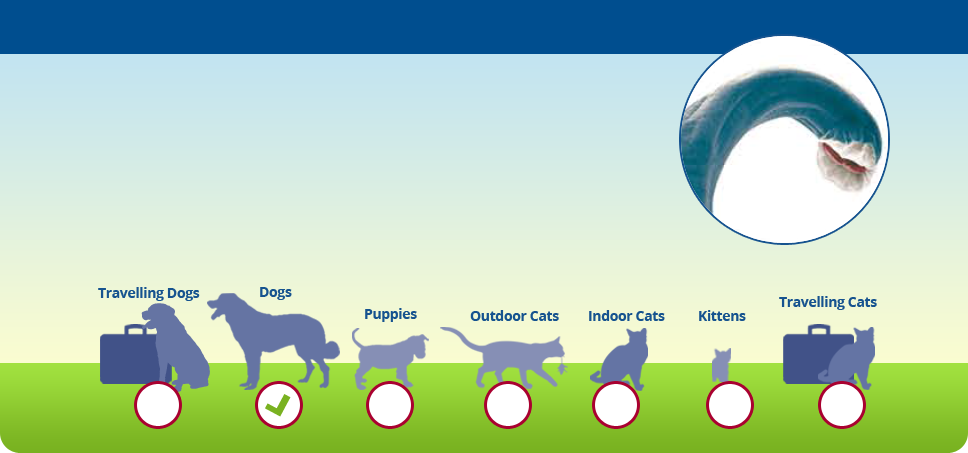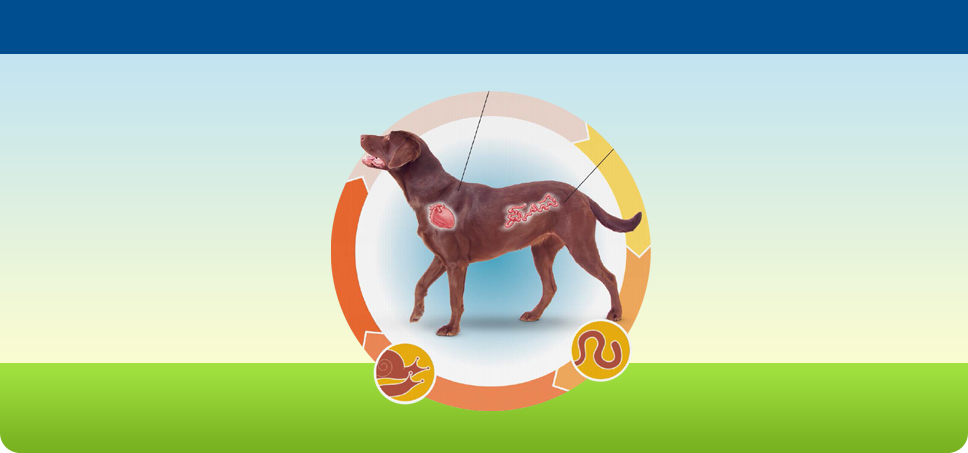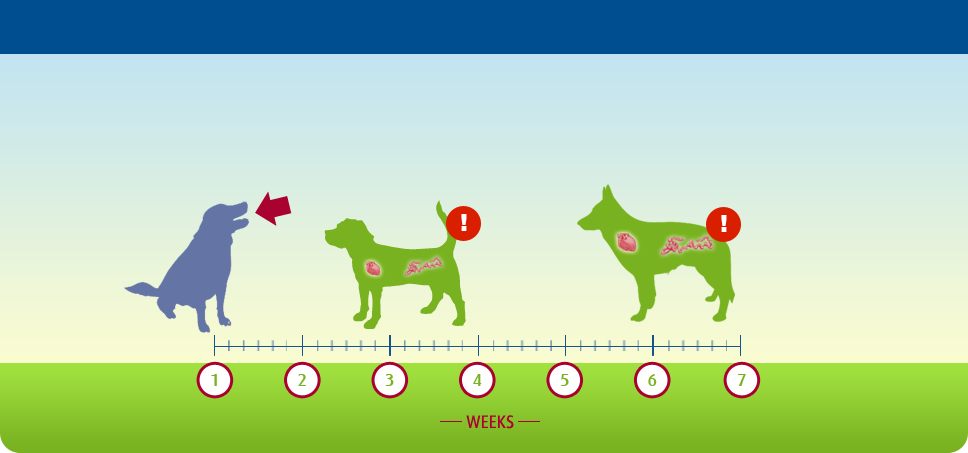
Please rotate your mobile for a better view
Wormopedia - Lungworms



Lungworm (Angiostrongylus vasorum and Crenosoma vulpis)
These specific parasites only affect dogs and are carried by slugs and snails. If eaten by pets the infection can enter their bloodstream, infect the dog and in some cases the condition can prove fatal.
- AT RISK -

Lungworm (Angiostrongylus vasorum and Crenosoma vulpis)
Lungworm is considered to be an ‘emerging’ disease in the UK and may be linked to climatic changes.

Lungworm (Angiostrongylus vasorum and Crenosoma vulpis)
Symptoms
Lungworm is a type of parasite that can affect the respiratory tract. Once inside your pet, they gradually damage the airways so you may notice a cough and/or breathing difficulties.
You may notice some of the following in your dog if he has picked up lungworm:
You may notice some of the following in your dog if he has picked up lungworm:
- weight loss
- poor appetite
- vomiting
- diarrhoea
- bleeding – from the nose, eye or more than usual from a minor cut or wound
- anaemia (paleness around the eyes and gums)
- tiring easily

Lungworm (Angiostrongylus vasorum and Crenosoma vulpis)
Lifecycle...
Larvae mature into adults in the pulmonary arteries and the right heart
Larvae move to intestine via tracheal migration
Intermediate host ingested by dog (final host)
Larvae ingested by intermediate host (slugs and snails)
Larvae passed in faeces

Lungworm (Angiostrongylus vasorum and Crenosoma vulpis)
Infection stages
Depending on the type of lungworm picked up, it can take from a few weeks to several months for a dog to exhibit signs of infection.

Lungworm (Angiostrongylus vasorum and Crenosoma vulpis)
Risk to humans
Luckily for us, lungworm is not transferable to humans, but it can be deadly for our dogs.

Lungworm (Angiostrongylus vasorum and Crenosoma vulpis)
Spread in Europe
Lungworm first emerged in France but has since spread right across Europe.

Lungworm (Angiostrongylus vasorum and Crenosoma vulpis)
How to get rid of them
Prevention is definitely better than a cure with only vet strength wormers able to prevent the parasite from damaging your dog’s health. If you have concerns that your pet may have picked up lungworm, consult your vet as soon as you can. Most pets with lungworm make a full recovery if they are treated quickly. If left however, more complicated secondary infections can occur such as pneumonia. In areas where lungworm is present your vet will recommend using a vet strength wormer monthly to prevent lungworm causing disease in your pet.





this...